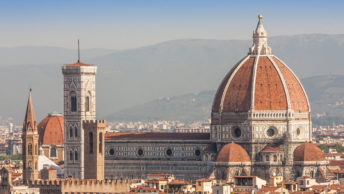“A long time ago a lighthouse sat along a dangerous stretch of coastline. A man was put in charge of this lighthouse. When he was first assigned as lighthouse keeper, he was given just enough fuel oil to last him one month, and he was told to keep the oil light burning in the lighthouse every night.
There was a young widow with two small children who lived not too far from the lighthouse. One day she asked to borrow some of the fuel oil to help heat her house for her and her children. A neighboring farmer also asked to borrow some of the fuel oil to power an engine. And a young school boy asked if he too could have some oil for an oil lamp so he could read.
The guard saw all of these requests as a worthy cause and gave some oil to each of them to satisfy their requests. But the fuel oil tank for the lighthouse ran dry before the month ended. Consequently, he could not ignite the light in the lighthouse.
One night three ships crashed on the rocks because the lighthouse was dark. Many lives were lost. There was an inquisition and a trial. The lighthouse keeper explained what he had done and why. The prosecutor replied, ‘You were given only one task. To keep the light burning! Nothing in the world can stand between you and this one task. Everything else is secondary. You failed in your duty and you have no excuse!’”
Every day of our lives we must make choices. Temptation is a choice between good and evil. Sometimes that choice can be difficult. But the most difficult of all choices is the conflict we face when we must choose between two good things. The lighthouse keeper in our story found himself in such a conflict. When we are confronted with choosing between two good things, the good can easily become the enemy of the best. When we find ourselves in those situations, we are given the difficult task of saying “No” to the good, in order to say “Yes” to the necessary.
So too, the Gospel of Luke (9:51-62) contains four similar situations. Each of these encounters in the Gospel highlights a different concern.
The first incident is the encounter between the messengers of Jesus and the Samaritan villagers. The concern that prevented the Samaritans from accepting and following Jesus was patriotism. Samaritans and Jews were enemies. Their cultures did not mix. The Samaritan villagers had undoubtedly heard about Jesus and of his accomplishments, and they were undoubtedly interested. But as soon as they learned that Jesus and His disciples were headed for Jerusalem, their admiration turned to opposition. The Samaritans had to make a choice and they chose to remain loyal to their nation’s prejudice and in doing so they missed the golden opportunity of welcoming the King of Kings.
The second incident in the Gospel involves a man who says to Jesus, “I will follow you wherever you go.” Jesus responds by saying, “Foxes have holes, birds of the air have nests, but the Son of Man has nowhere to lay His head.”
Why did Jesus say that? We know that Jesus knew the hearts of those around Him. So could it be that Jesus knew the man’s heart and that this man placed a high value on financial independence and security? Could it be that Jesus was telling this man that if he wanted to become a disciple of His, he would have to live like Him, homeless and poor?
We can never know for certain. But what we do know is that the Gospel gives no indication that the man chose to follow Jesus thereby missing the best.
The third incident involves a man that Jesus invited. Jesus says, “Come follow Me.” The response is a request for a delay. God knows the circumstances of our life. To follow Jesus is to allow Him to lead and guide us. Choosing any other path would be foolishness.
And in the final incident, there is a man who wanted to say farewell to his family before following Jesus. Again, that doesn’t sound like a bad thing. Yet Jesus makes it clear that, before the urgent call of God, all other concerns take a back seat. “No one who puts a hand to the plow and looks back is fit for the Kingdom of God.” After having been called by Jesus, one must not take their eyes off of Him. If one chooses to look back to ones old way of life, rather than keeping focused on their calling, this inattention to duty will prove to be an obstacle to that calling.
These four stories make it clear that to follow Jesus, is to follow Him unconditionally. There is a simple little test we can use to see if we have understood and accepted His invitation. Simply complete this sentence, “I will follow Jesus on the condition that —-.“ If you can complete that sentence, then you are in the same situation as the people in today’s Gospel. Jesus will not accept second place in our lives. Jesus told us that the greatest of all the commandments is, “You shall love the Lord your God with all your heart and with all your soul and with all your strength and with all your mind.”
The most difficult of all choices is when we must choose between two good things. But through prayer, and devotion to God, we will find the ability to say “No” to the good, in order to be able to say “Yes” to the best and the necessary.








